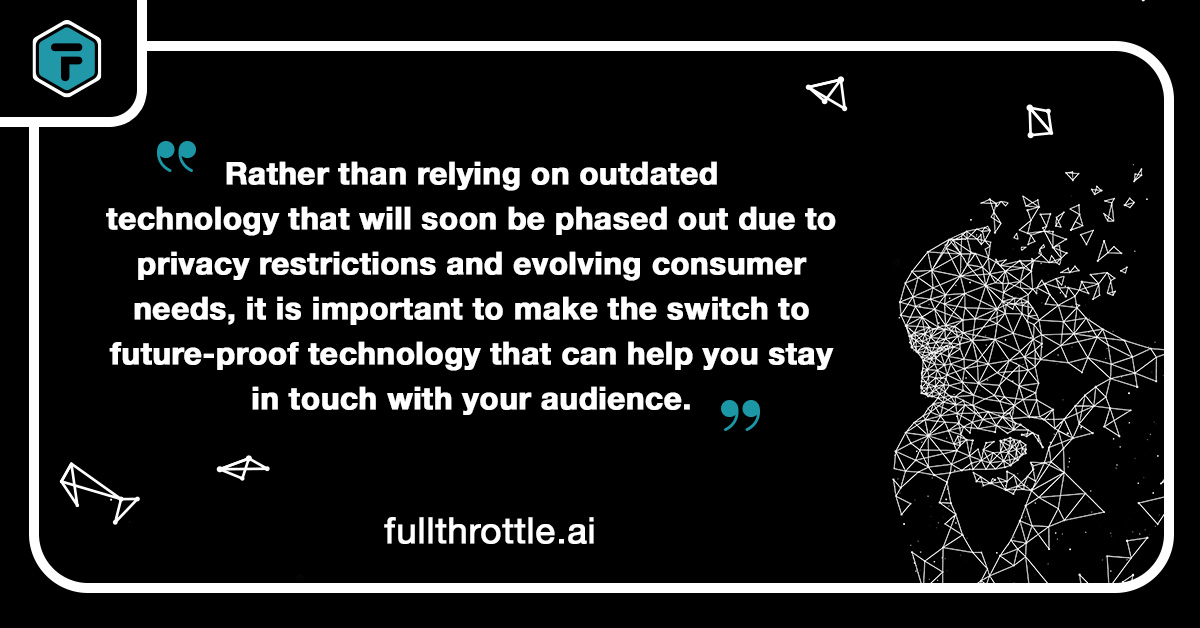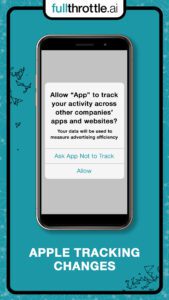
Where Do We Stand With Cookieless?
As everyone today leans into the future of cookie deprecation, you might expect a slew of marketing and companies to announce they have cookieless technology.
Of course, if the topic and pain point is that cookies are going away, you can expect these companies to claim that they have a cookieless plan.
Cookieless technology is really a framework of an idea though––how do we really define it?
Let’s first define the basics: what are cookies?
What Is a First-Party Cookie?
A first-party cookie is a small text file placed directly by a website/brand/publisher on the user’s computer, tracking their activity only on that website. For example, a clothing brand can save the items you placed in your virtual shopping cart for the next time you visit their website.
What Is a Third-Party Cookie?
A third-party cookie is also a small text file; however, this is stored on a user’s computer by a party that is not related to the website/brand/publisher OR the user.
These cookies are used to track a user’s activities across multiple websites.
For marketers still relying on information collected from third-party cookies, it is important to note that Safari and Firefox have already deprecated support and Chrome is in the process of sunsetting support. This means you are missing a large portion of your potential shoppers who use those browsers.
What Does Cookieless Mean?
In the most basic sense, cookieless technology means technology that can identify and track consumers across the web, without the use of cookies. This means both first-party and third-party cookies.
This, however, does not always mean the technology is focused on the changing advertising landscape.
“Cookieless” Technology: Mobile IDs
In the past—and even within the past decade—most companies had cookieless solutions that were focused on mobile ID. A mobile ID is a unique device based off mobile devices (iPhone, Android, etc.).
For a long time, apps on smartphones were tracking the owner’s location, behaviors, and online patterns. Then they sold this information––without consent––to data brokers and third-party data assets.
Technically, this is a cookieless solution. You’re able to target people on their mobile devices for display advertising, in a browser or on apps with ads in them. This is what comprised the cookieless space for the last decade. There are many technologies today that are “cookieless” and focused on mobile ID audiences.
The Apple Tracking Changes
What has fundamentally changed and is putting the mobile ID space at risk is the updates that Apple has rolled out. Apple has made both a strategic pivot and focus on privacy over the last two years. One of the things they’ve done, which is great for the consumer, is to roll out a “ask app not to track” pop up.

Apple’s point of view is that if you’re going to take John Doe’s device usage and sell/monetize it, at least ask for permission.
All that information being gathered without consent is why Apple stepped in.
One of the biggest reactions to this new pop-up is that people are asking not to be tracked. In fact, when this pop-up launched, 96% of users asked their apps not to track. However, this is slowly declining over the years, with roughly 25% of users allowing apps to track. This is still not a large number though.
As users are opting out, this “cookieless” solution is gaining less audiences. For example, let’s say an app was collecting information on people who go to the gym. Some of these gym-goers didn’t realize their information was being tracked, so when they receive a pop-up, they opt out. Now, these apps are not getting new signals and their pool of gym audiences grows smaller.
There are still a lot of companies who use mobile IDs. There are still a lot of mobile IDs out there that people have already collected. However, new signals that those IDs are backed by doing something else is being cut in half.
The historically recognized “cookieless” technology solution of collecting mobile IDs is not a good place to invest right now. It is, however, still a big piece of education in the AdTech space and important to understand, so brands, agencies, and media companies can move towards a cookieless technology that will stand the test of time.
True Future-Proof Cookieless Technology
Rather than relying on outdated technology that will soon be phased out due to privacy restrictions and evolving consumer needs, make the switch to future-proof technology that can help you stay in touch with your audience.
fullthrottle.aiTM transforms your website visitors into first-party household data. This is all done through opt-in measures, making our technology truly future-proof. Your consumers want personalized experiences and the best way to provide that is to meet them where they are––your website.
Our technology isn’t based on decaying technology, such as cookies, mobile IDs, or IP addresses. It is built on patented technology, making it unique to the industry.
To discover fullthrottle.ai’s cookieless technology, schedule your demo today!


